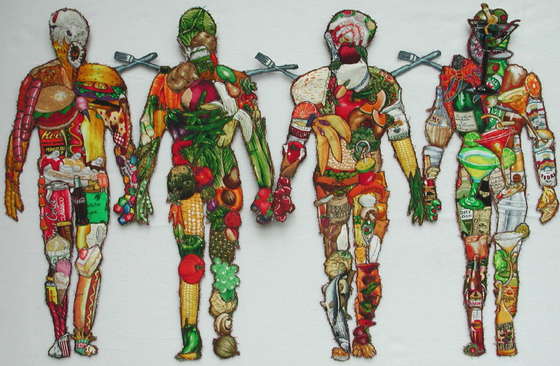You Are What You Eat
This old adage is commonly heard especially in the advent of researches supporting healthy diet and good nutrition. It is quite simple to understand but by the mechanisms to which how this works may not be as simple as it is. These mechanisms and how they affect our behavior will be the focus of this blogpost.
You eat well you feel well
This is perhaps standard belief about food. What we take into our body will start a series of reactions that dictate the functioning of our organs as a whole. Nutritionists recommends everything in moderation, not entirely removing one food group because in a way even bad stuffs have purpose in the body. That is even bad cholesterol which has fatty acids that make up the protective linings of our organs. These cholesterol are not just the sole source of these fatty acids, but nevertheless, they could provide one. But excessive intake of food containing bad cholesterol would probably clog our arteries, reducing the amount of circulated oxygen needed badly by our brain and muscles of the heart. Therefore, the food we take in could potentially make us well, ill or feel unwell.
You feel well you eat well
Our state of well-being influence how much and what we eat. This is somehow part of the negative feedback systems our body has to ensure equilibrium. When one is somehow melancholic, the brain will detect a need for an increased levels of endorphins or happy hormones. To do this, the brain will initiate cravings to ingest more foods that help in this process. People tend to eat chocolate and similar stuffs, or perhaps exercise to help release endorphins. Moreover, sometimes the body is in the state of mineral deficiency, could be iron, potassium, calcium etc. Because of this, individuals develop seemingly abnormal eating patterns like pica (eating ice cubes, hair and even soil) to replenish the needed minerals in the body. Also, some may unusual desire for fruits just because their bloodstream is in dire need of potassium, needed to keep the heart well-functioning. Hence, these are some examples of how are feelings may influence the way we eat.
You eat well you react well
The digestive system has our second brain. This brain is not capable though of thinking but is mediated by reactions to everything we ingest. Since the gut is the organ with the maximum exposure to the environment for example the food we eat, it has mechanisms ensuring good feedback from the brain. Bacteria, hormones and chemicals found in food could trigger gut cells to produce serotonin, which potentially excites nearby rich beds of nerve cells as direct channels to the brain. At first look, this is somehow a defensive purpose of the body to counter and get rid of unwanted materials in the gut being taken into the body. But the same mechanism would serve as glass window to how we react since the same serotonin are known to be responsible for our emotions and behavior.
This blogpost seeks not to serve as a nutritional advice to anyone. However, this would simply describe the existing connections between what we eat and how we behave in our day-to-day activities. There are no clear research that pinpoints causation to which food would result to an optimal state of health and well-being. Most of all researches are correlative, thereby showing only association of diet and health. These findings are not prescriptive, rather suggestive. That is also the objective of this blogpost.











Comments
Post a Comment